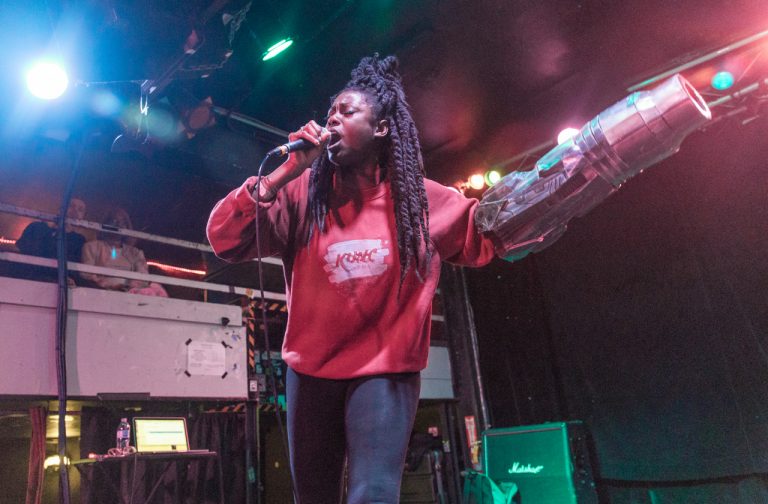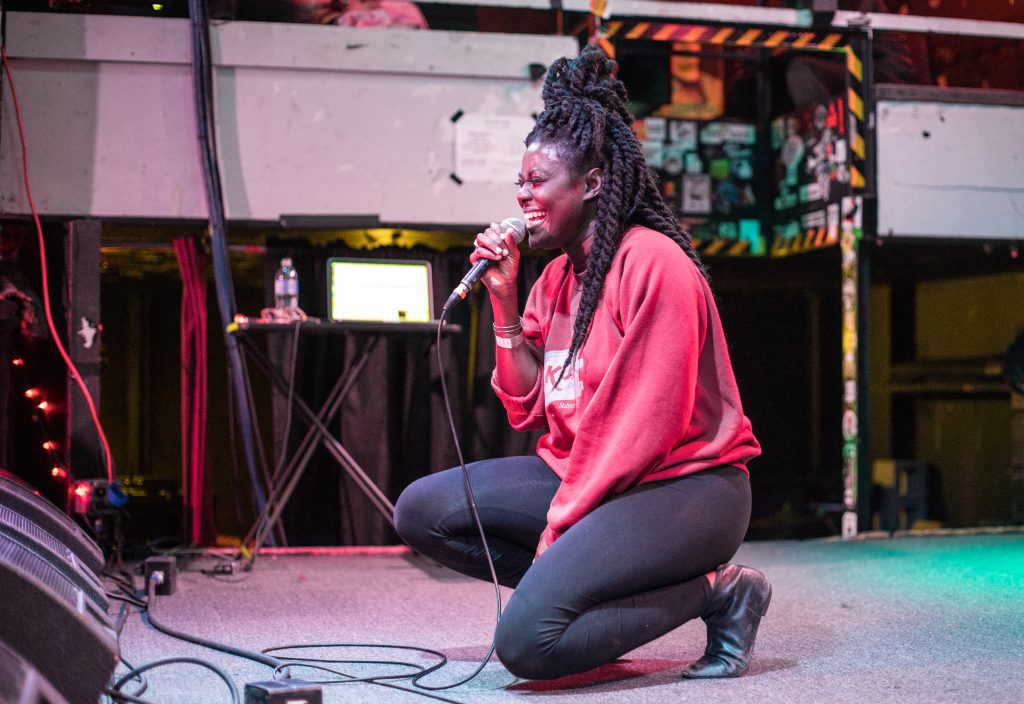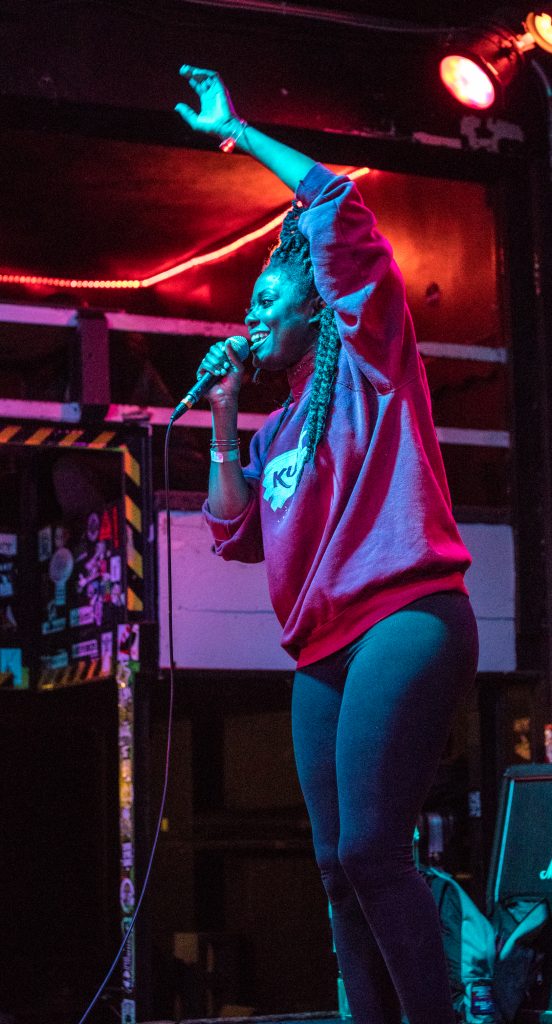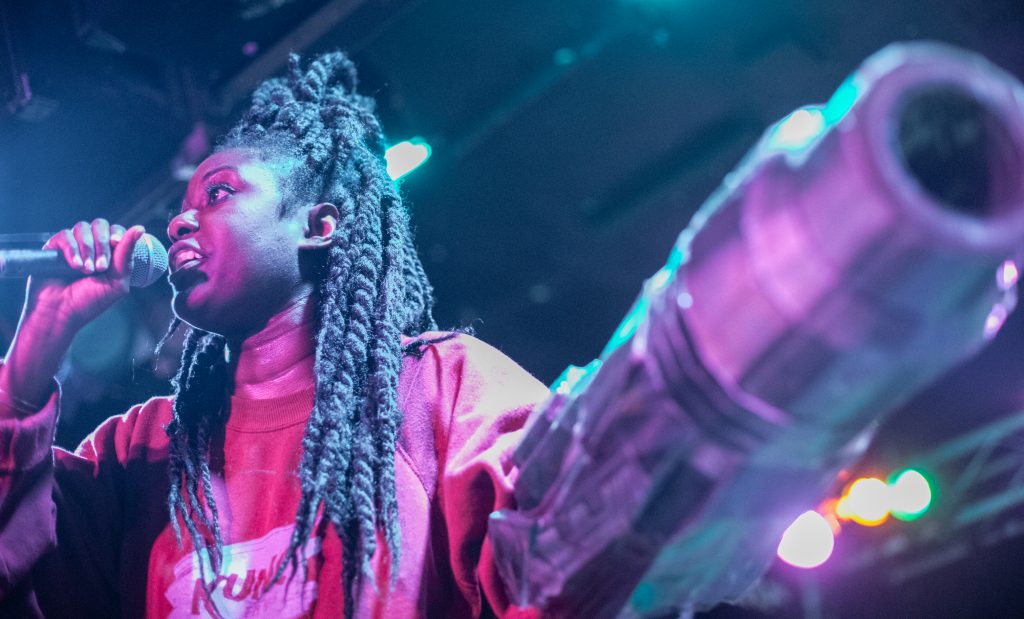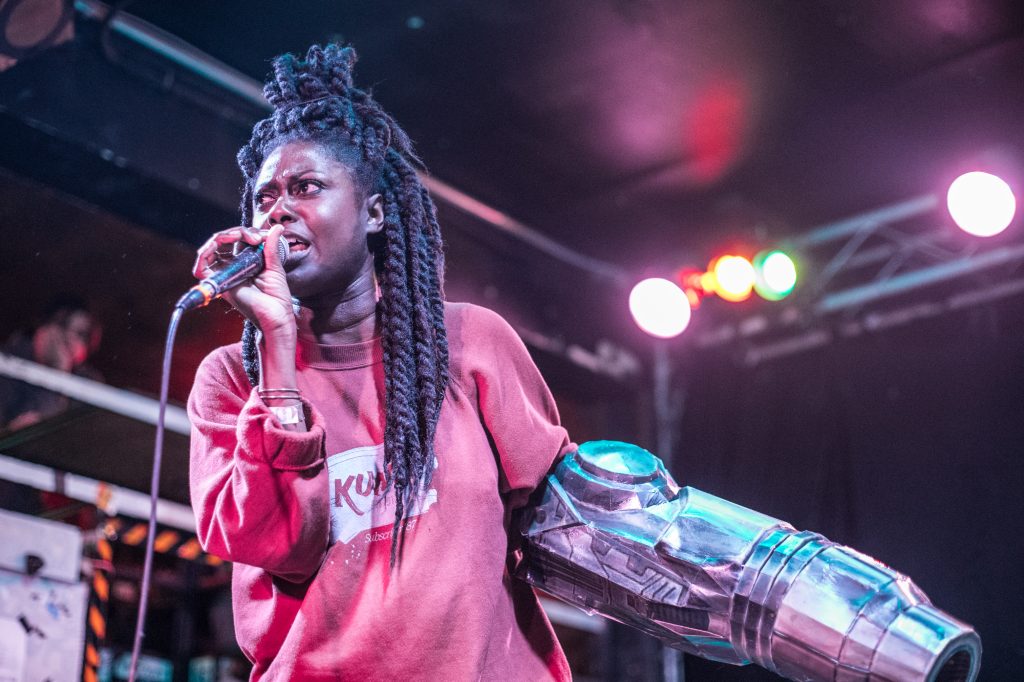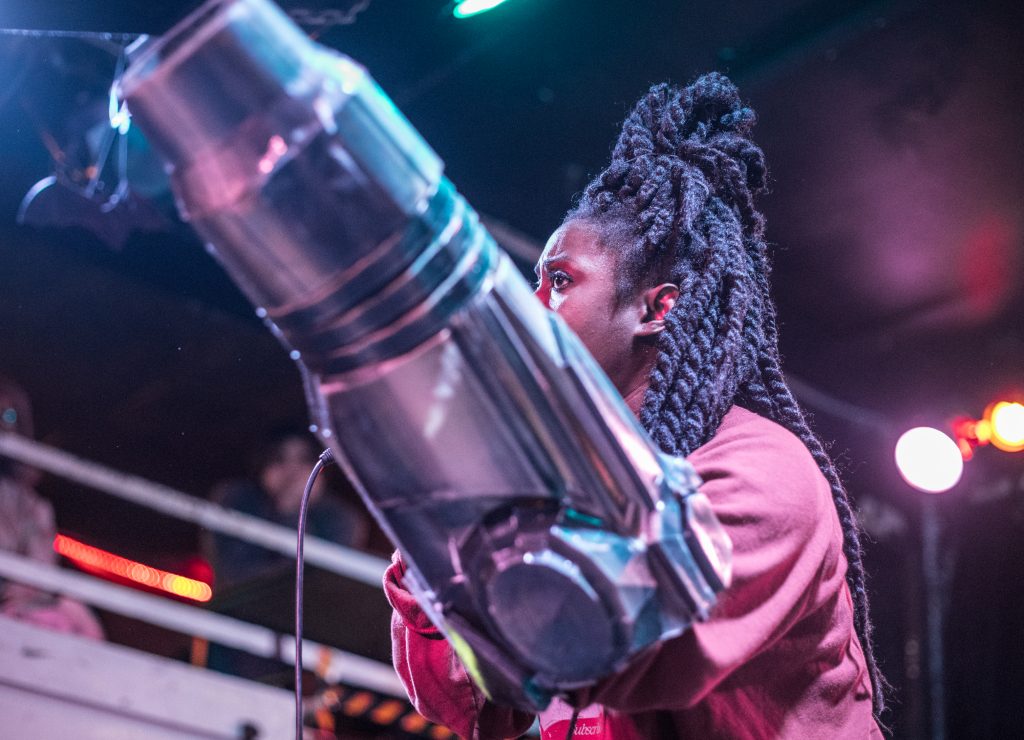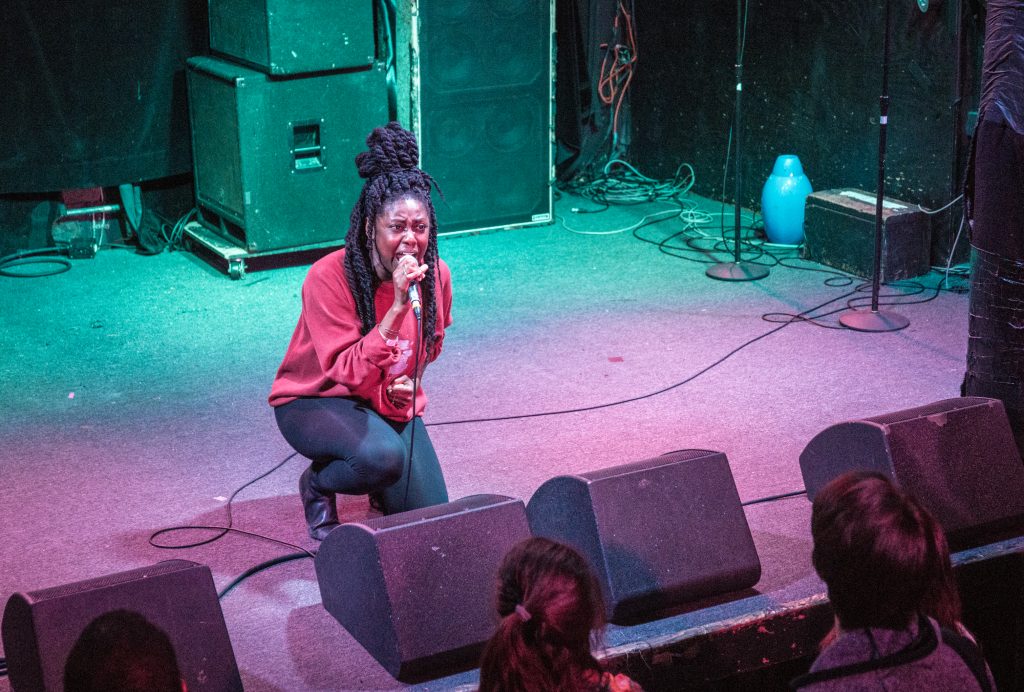By Jack M. Angelo, Senior Content Producer
In the 21st century, there is an overwhelming amount of entertainment options. Movies and television are saturated to the point where it is impossible to keep up with all the quality releases each year.
Two industries that have been on the rise since the late 70s are now two of the most prevalent elements of our current zeitgeist, hip-hop and video games. The two industries have made incredible leaps forward since then, and have influenced pop culture in clear and important ways. Rap and gaming have also been inexorably linked ever since at least the late 80s, when DJ Jazzy Jeff & The Fresh Prince’s, “Human Video Game,” had Will Smith recounting his younger days playing games in the arcade. 30 years since that song was released, each industry has become worth tens of billions of dollars, diversifying into a nearly unlimited amount of genres and subgenres each. At some point in the last few decades, some of these subgenres combined together to make a new style of music, video game rap.
Despite its relatively young age, video game music, or VGM, has grown to become its own beast. Organizations like Music and Gaming Festival (MAGFest) have combined the two interests with events all over the DMV dedicated to music and gaming. Apart from the organization’s annual convention, MAGFest holds various events during the year, including Itty Bitty Bitgen, a miniature version of Bitgen, a day where bands and video game consoles are available to listen to and play.
On March 26, 2018, six different artists came to the stage of the Ottobar in Baltimore, Md. to rock the crowd, but the stand out act of the night was far and away New York rapper/producer and “Feminerd” Sammus.
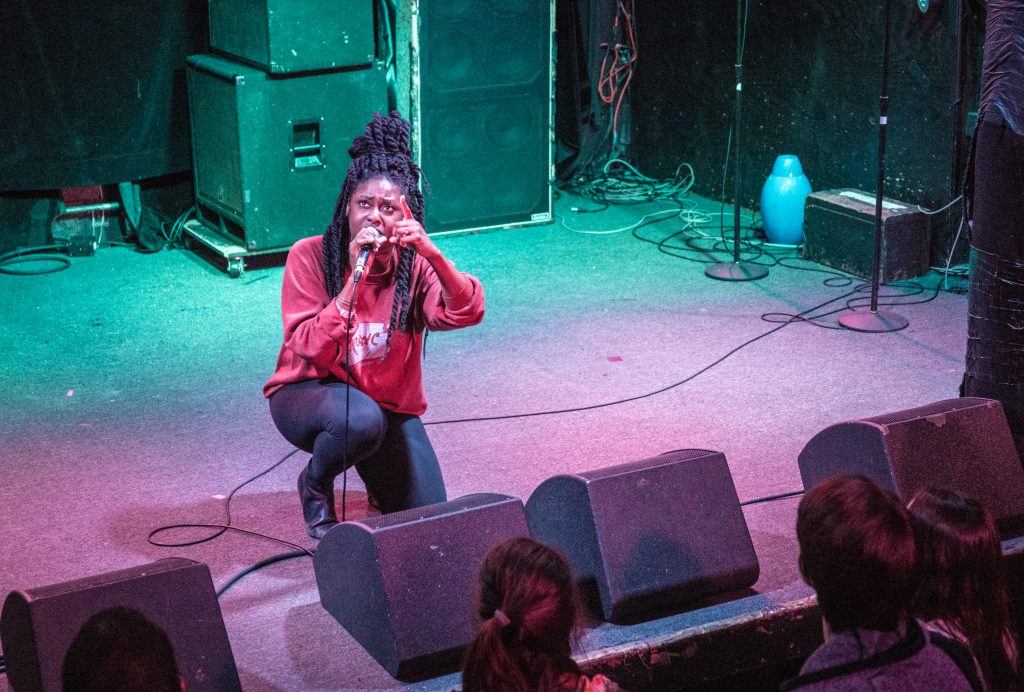
If that name sounds familiar, it should. In 1986, Nintendo published “Metroid,” a game for the Nintendo Entertainment System that spawned a lasting franchise. In this game, you play as the hero Samu Aran, concealed by a full space suit as you traverse the desolate planet Zebes. At the very end of the game, the hero removes their space suit, revealing that Samu is a woman. This unexpected twist had a profound impact on the now-32-year-old Enongo Lumumba-Kasongo, who was only a few months old when the game was first released, and she named herself Sammus, a variation on the space marine’s iconic moniker.
This particular Itty Bitty Bitgen featured artists of many genres. The act before Sammus, Rare Candy, is an instrumental rock band that performs video game covers. Within five minutes of the band’s short set ending, the stage was completely cleared, save a microphone and small table with a laptop and sampler, signifying a drastic, and perhaps jarring change of genre.
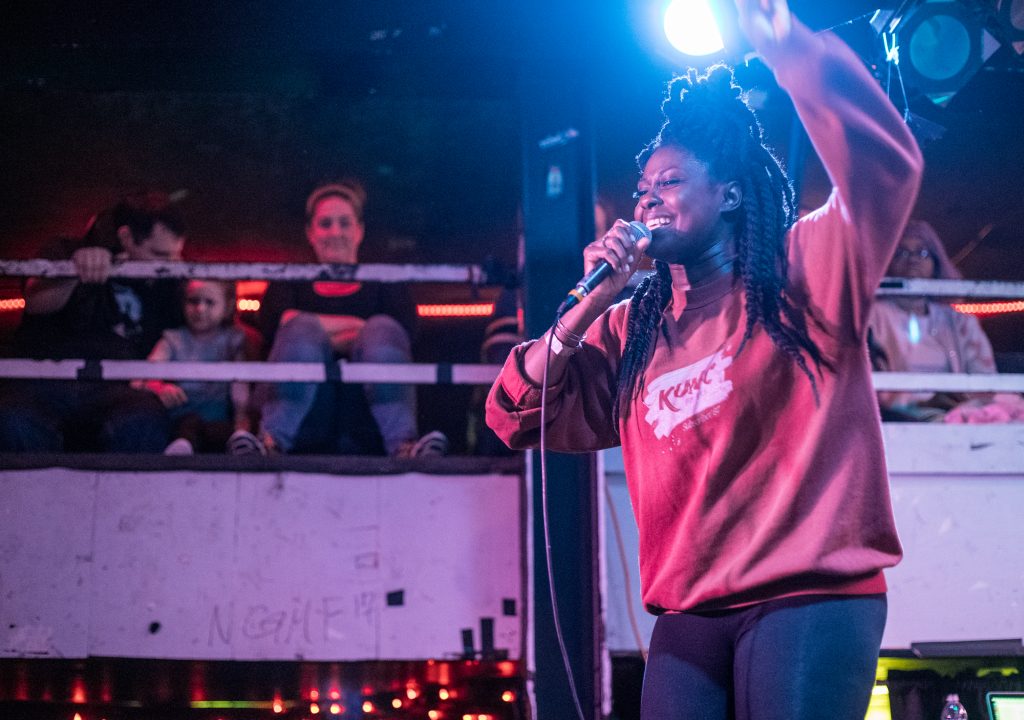
Sammus, though she has consistently been making music for years, is still criminally situated deep in the underground, meaning that she had plenty of audience members at the Ottobar to win over that evening. However, Sammus did draw a small crowd of people specifically there to watch her performance, judging by their knowledge of her every single lyric.
Sammus’ opening song received a lukewarm reception, but a minute into her next song, the audience began to listen to her words. Many of Sammus’ songs focus on the different facets of her personality, including her race, upbringing, and love of video games. Her lyrics are littered with clever wordplay, some of which hits you immediately, while others do not manifest their true meanings until the third or fourth listen. Her lyrics are relatable to anyone who has been bullied for their interests, their skin, or their gender.
In between her songs, Sammus took time to talk about herself, explaining her influences and interests, and relating to her audience. She spoke of her time growing up in small-town New York, dealing with racism and sexism. The Ivy League graduate and PhD student recalled how she was told she “talked white,” and, “you’re only in this honors class because of affirmative action.”
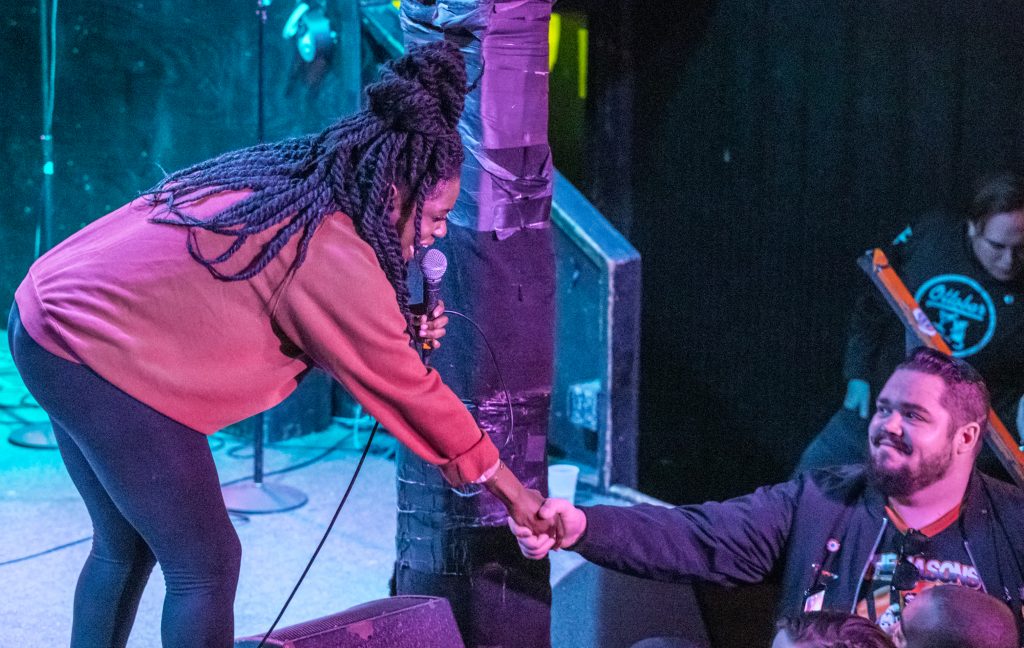
By the time Sammus performed her song “Mighty Morphin’,” the crowd was screaming along to lyrics they had just learned. “I’m not one thing, I’m not two things, I’m not three things, no, I’m not four things,” they sang along, celebrating the multi-faceted nature of humanity. “You are a complex human being and anyone who says otherwise is your enemy, cut them out immediately,” Sammus ended the song. The audience had found someone eternally relatable, and talented at that. Her flow and delivery are just as enticing as her lyrics, dexterously navigating through complicated syllable patterns like a star ship through a dense asteroid field. Anyone at the Ottobar that evening was converted into a Sammus fan.
Self-proclaimed Hip-Hop fans who believe that genre is dead, or that the quality has suffered in recent years, are not looking in the right place. There are hundreds of quality rappers in the world if one searches hard enough. Sammus has been there the whole time, and missing out on her is a mistake too many seem to be making.
These incredible photos from Sammus’s performance at Ottobar, in Baltimore, MD, on March 26, 2018, were taken by StayUp.News senior content producer and photographer Jack M. Angelo:
StayUp.News documents social and political issues through Hip-Hop, amplifying unheard voices in a language all their own. But we can’t do it without you. Support this important mission and receive exclusive content:

